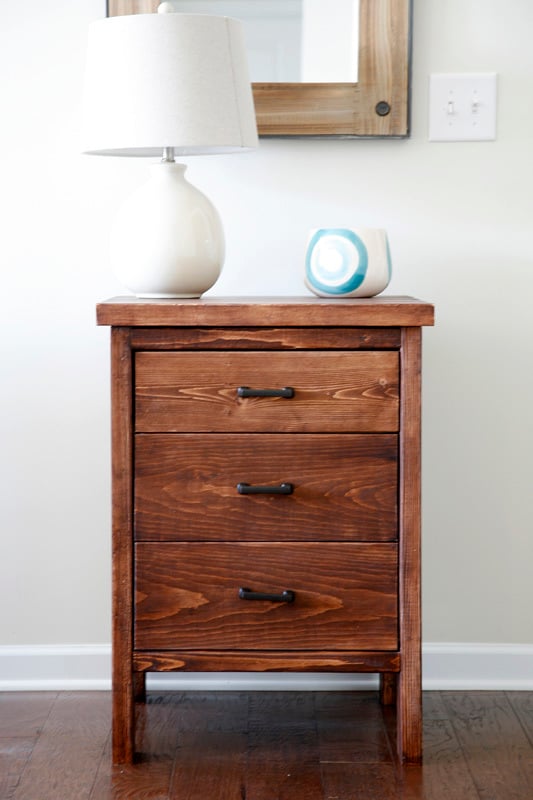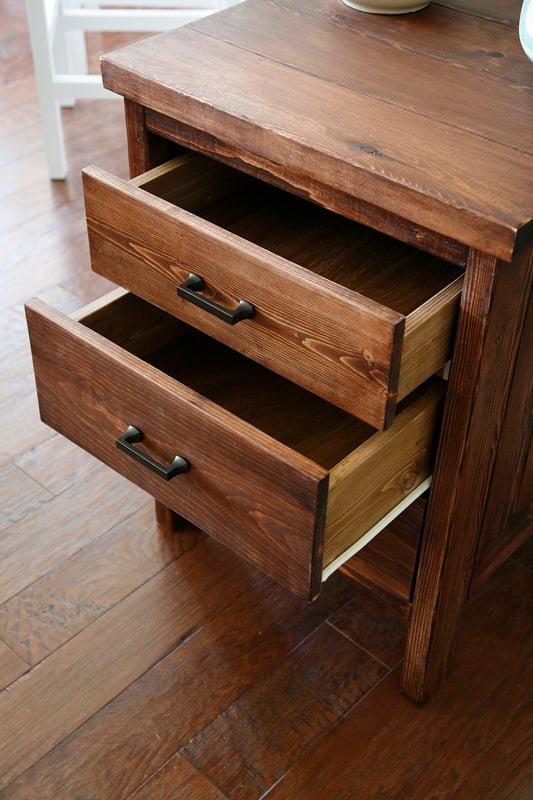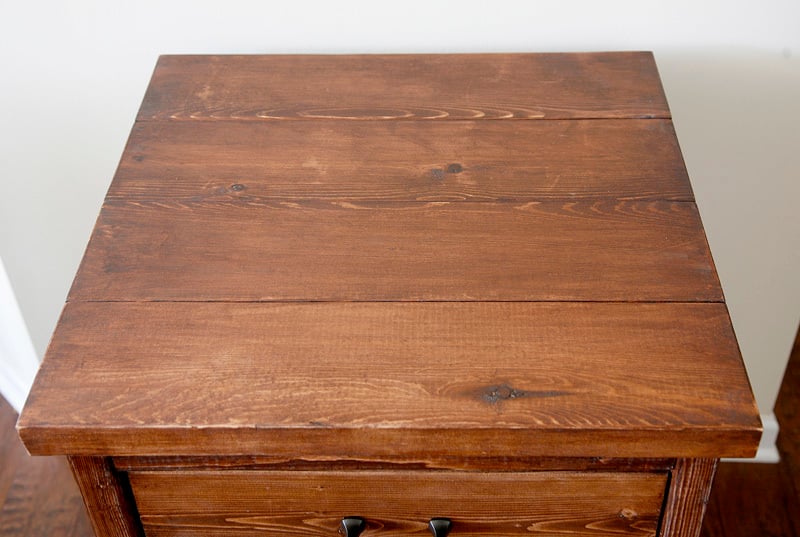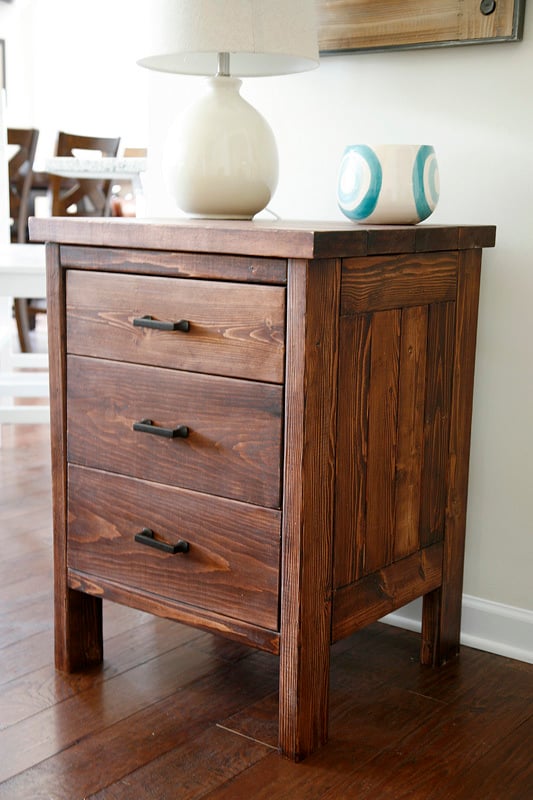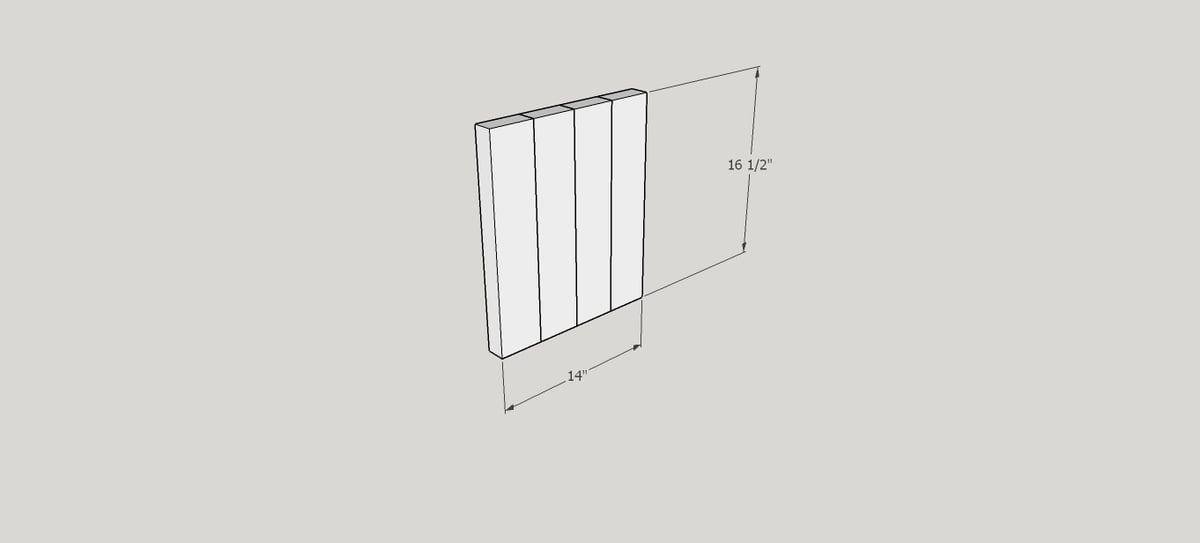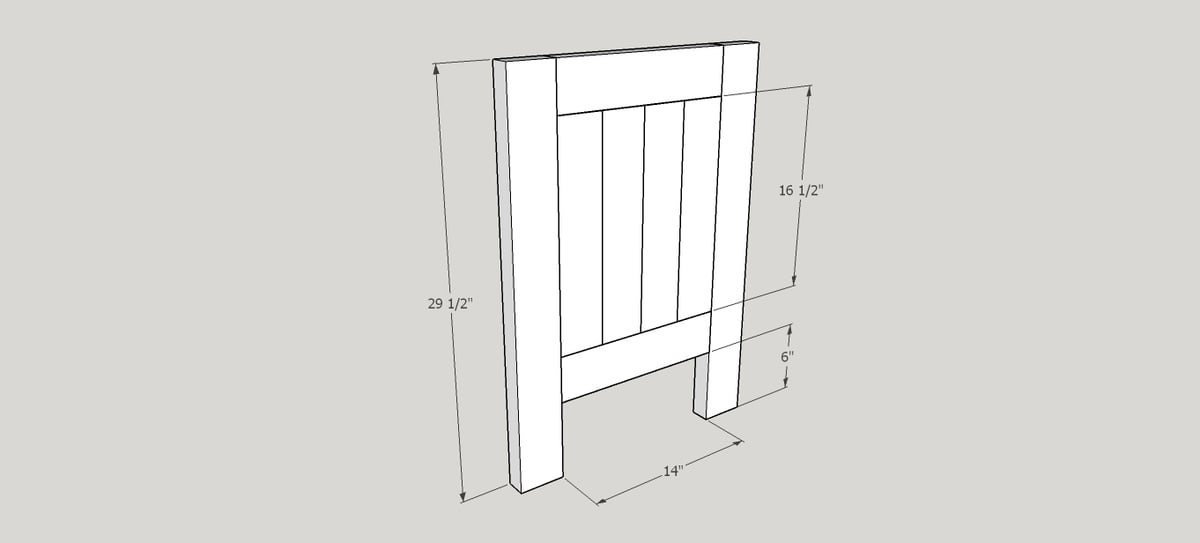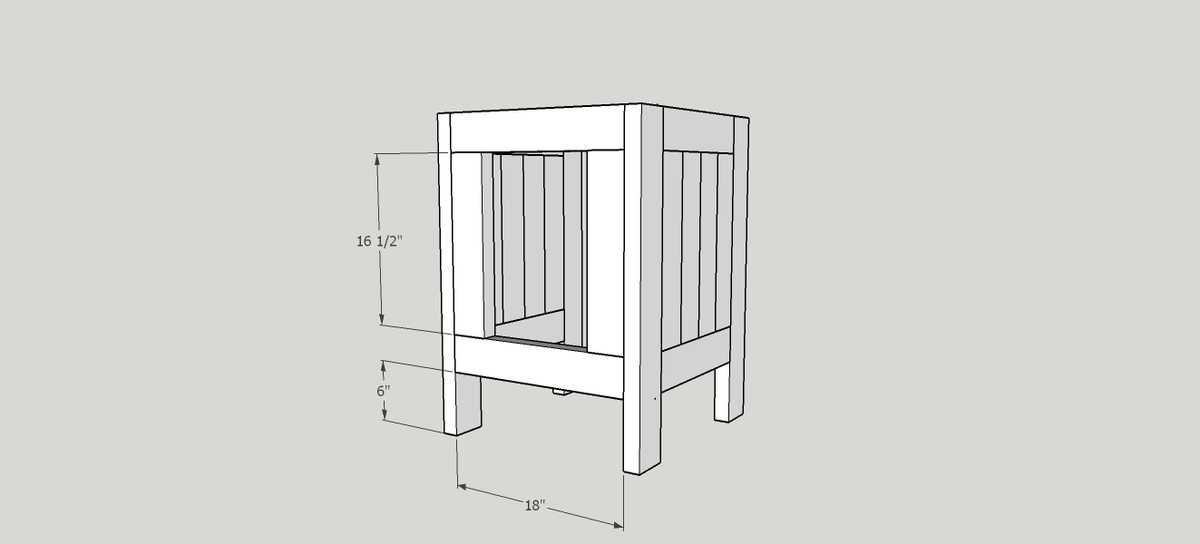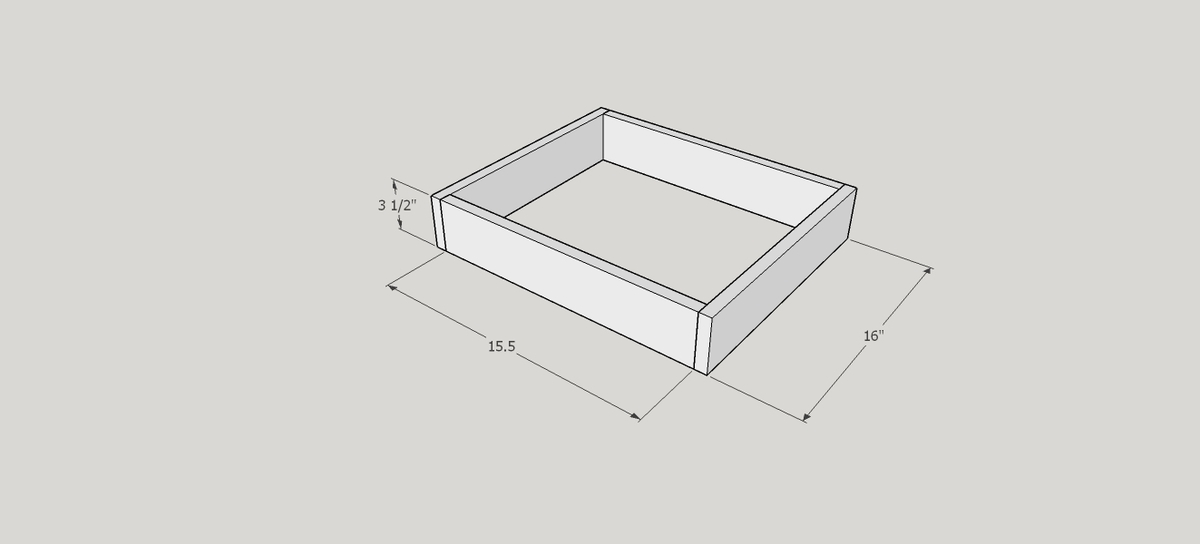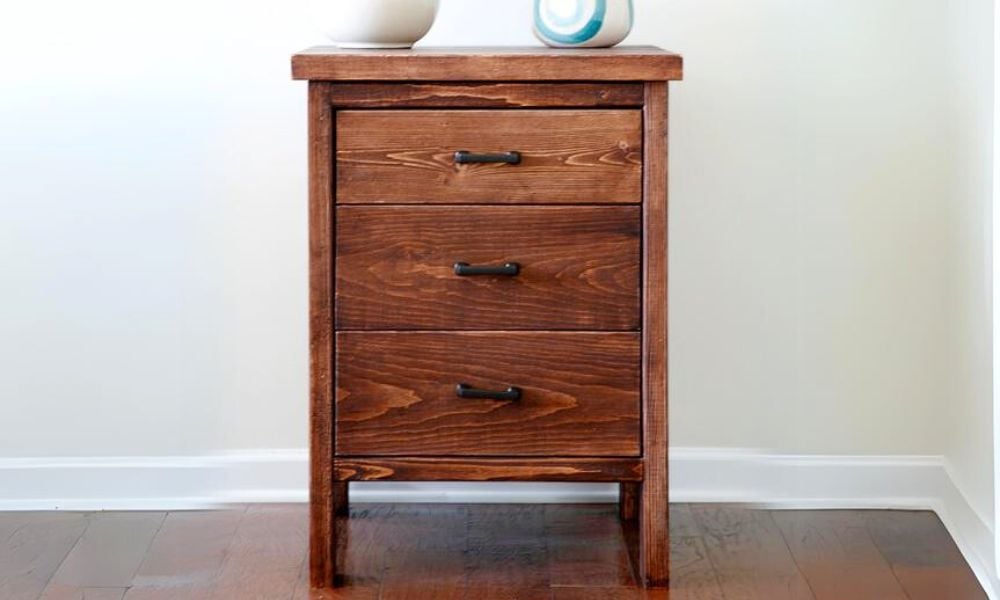
I made this project from an old work table and some wood left over from another project for Ana's scrap wood competition I have drawn up a cut list for you though as if you were using full size boards.
Preparation
Full cut list given in plans
Full cutting instructions given in plans
Please read through the entire plan and all comments before beginning this project. It is also advisable to review the Getting Started Section. Take all necessary precautions to build safely and smartly. Work on a clean level surface, free of imperfections or debris. Always use straight boards. Check for square after each step. Always predrill holes before attaching with screws. Use glue with finish nails for a stronger hold. Wipe excess glue off bare wood for stained projects, as dried glue will not take stain. Be safe, have fun, and ask for help if you need it. Good luck!
Instructions
Step 1
Step 2
Step 3
Step 4
Step 6
Make the two larger drawers.
Drill pocket holes in the both ends of the 15 ½ inch length 1 by 6 drawer pieces.
Join the 16 inch pieces to the 15 ½ inch lengths to form the drawers.
You can either route the sides to fit ¼ inch plywood base inside or fix the base to the bottom.
Fit the drawer slides to the bottom of the drawers as well.
Step 7
Follow the instructions of your slides to fit them to the sides of the cabinet.
Usually there should end up being half an inch gap between the bottom of the drawers and top of the rail underneath it but follow the instructions that come with your drawer slides.
Step 8
Fit the drawer fronts.
The small drawer front is the 1 by 6 piece measuring 17 ¾ inches long (1/4 inch narrower than the space they are fitting). Measure and cut to fit your project though.
The large drawer fronts are the 1 by 8 pieces measuring 17 ¾ inches long (1/4 inch narrower than the space they are fitting). Measure and cut to fit your project though.
Fit the drawer fronts ensuring equal gap at top and outer edge for both.
Drill two holes through the inner drawer front and then fix the outer drawer front by screwing through the inner drawer front into the outer drawer front using 1 ¼ inch screws.
Step 9
Step 10
Drill pocket holes on the side and back panels facing upward for screwing the first top layer to with 2 ½ inch pocket hole screws.
Drill through the top of the front 2 by 4 rail so the top can be screwed on from underneath.
Place the top with the good side down and then place the upturned cabinet on top.
Make sure you have equal gap all around and then fix the sides and back with 1 ¼ inch pocket hole screws and the front edge with 2.5 inch wood screws through the front rail.
Step 11
Fit the back panels from the inside.
I suggest you leave at least half an inch gap around the edge and use ¾ inch finishing nails to fix it.
Dimensions given in plan (12 inches by 17 ½ inches) allow for 1 inch overlap around each side.
Step 12
Sand well to smooth our joints and remove any wood glue residue.
Apply Pre stain and your choice of color or paint as desired.
The example in these plans was finished in Varathane Carrington and Varathane Matte Poly.
Step 13
Add hardware of your choice to the drawers (you will need to temporarily remove the front drawer parts).
It is always recommended to apply a test coat on a hidden area or scrap piece to ensure color evenness and adhesion. Use primer or wood conditioner as needed.


